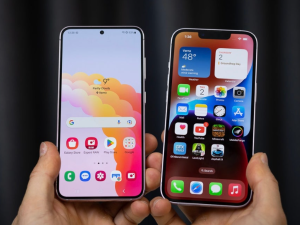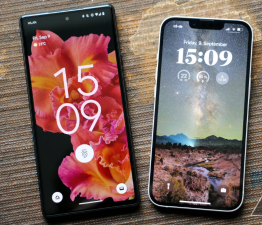iOS 18 is called "the strongest update in history", but the biggest topic is that it is complained about being "like Android".
iOS 18 is called "the strongest update in history", but the biggest topic is that it is complained about being "like Android".
Six major systems have been updated, a unified version name has been changed, and the design language has also been completely renewed. "Liquid glass", naked eye 3D lock screen, photo into 3D special effects, are indeed dazzling, but many users feel that the control center is chaotic, but not as straightforward as before.
The interface is like Android, and the experience relies on plug-ins. These changes piled together bring a familiar "slow change"-a lot of updates, but it is difficult to make people shine.

Controversial focus: iOS18's three major functions are similar to the Android system
Desktop interaction: the "super terminal" of the Internet of Everything
The new "device senseless interconnection" function of iOS18 allows iPhone to automatically identify and work with tablets, computers, headphones and other devices. Users can drag and drop files and share computing power with one click. It was found in actual testing that its logic and operation interface are almost the same as Huawei Hongmeng's "super terminal".
Split-screen multitasking: directly "copy" the Android camp?
iOS18 supports application split screen and floating small window functions for the first time, and users can operate multiple application windows at the same time. However, this function has been popularized in Android customized systems for many years, and Xiaomi's MIUI and OPPO's ColorOS have both made it standard.
Actual test comparison: The split screen logic and operation gestures of iOS18 are more than 90% similar to those of the Android system, with only slight differences in icons and animations.

AI Assistant: Voice commands "pixel-level reference"?
iOS18's AI voice assistant has been upgraded to "active service mode", which can automatically recommend alarms, itinerary reminders, and even execute complex commands across applications based on user habits. However, this design is highly overlapped with vivo's "Jovi Assistant" and Honor's "YOYO" functions, and even the keywords of "scene triggering" are extremely similar.
Plagiarism or coincidence? Apple's "innovation dilemma"
Faced with doubts, Apple officials have not yet responded positively, but foreign media disclosed that the description of "HarmonyOS module compatibility" appeared in some functional codes of iOS18, which is suspected to be prepared for adaptation to the Hongmeng ecosystem.
Behind the controversy, there are two hidden truths:
- Technological convergence: Driven by user demand, split screen, interconnection, and AI assistants have become "rigid needs" for smart systems, and similar functions are inevitable.
- Android system overtakes: Huawei Hongmeng, Pengpai OS, etc. are 2-3 years ahead of Apple in the layout of the IoT ecosystem, and iOS18's "reference" is actually a passive supplement.

